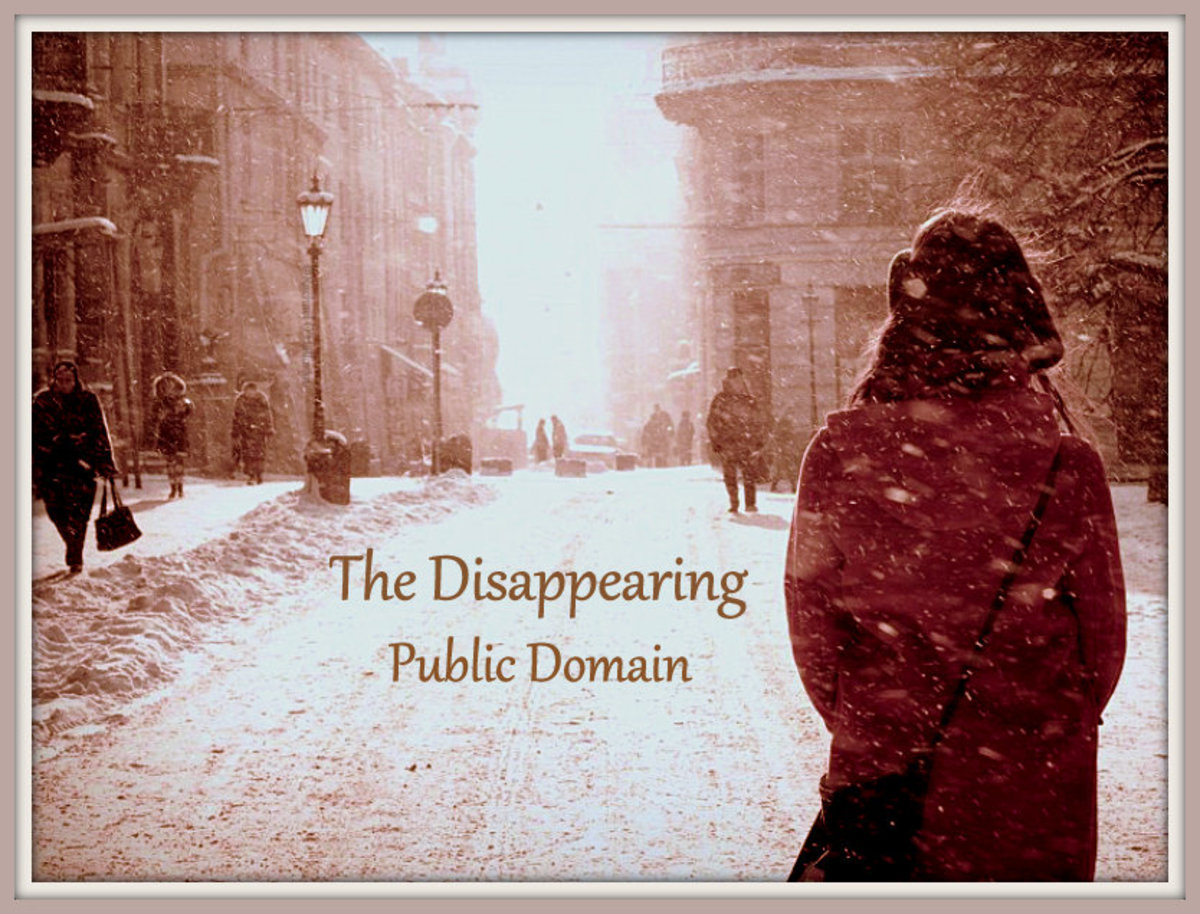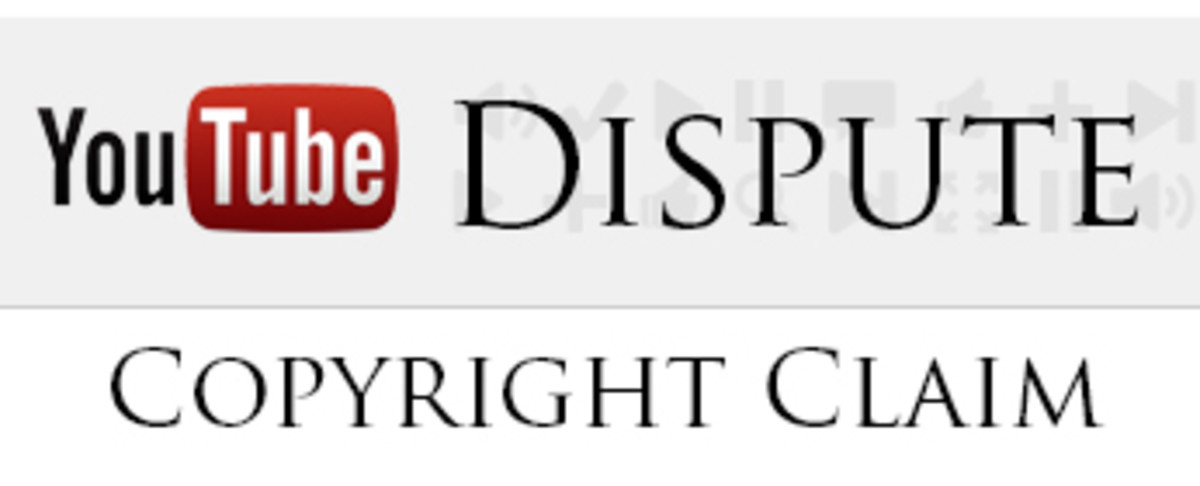Understanding © Copyright and (CC) Creative Commons
Making Media Law Interesting (Yeah, Right)
All joking aside, this is very important for those who make videos, even if you don't do it professionally.
Honestly, this is a very boring topic, but I will try to make it interesting.
If you seriously want to get into video production, there are a few things you need to know about what can be legally used in a video, and also how to protect your own work from being used without your permission.
We will look at Copyright Law, which is almost identical everywhere in North America. We will also look at something that is fairly recent, called Creative Commons License.
North American Copyright Law ©
We have all seen it. That little "©" in movies, on TV, in books and magazines, CDs and DVDs. Also the familiar "All Rights Reserved", but does anyone really know what it means?
Copyright Law is mostly common sense, in that you simply do not use something that belongs to someone else without asking.
Music is a good example. When you are adding music to your soundtrack, you can not legally use a piece that was not solely created and performed by you. However, it goes a lot beyond that.
Bands that perform "covers" of music...need permission to play it. It goes further. You are at a public event, and they are playing music over the PA...permission needed. How about this: restaurants that play music in the background...yep, permission. It is specified that ANY public performance of commercially-produced music is not allowed without permission from the copyright owner. That is if they are playing music from other than the radio. Interestingly, they can play the radio in a public place, because it is understood that the radio is intended for "public enjoyment", and radio stations pay a copyright fee for music and other programming specifically for that purpose.
In most cases, you will have to pay to use music that is not yours, especially if it is for commercial use. For example, in TV ads. If you ever see a TV commercial with a song that is very recognizable. TV commercial producers pay big-time copyright fees for using such music. Sometimes in the 6-digit figure range.
However, in the case of using music for community and public events, or other non-profit uses, the copyright fee may be less than a dollar, or even free. The fee depends on the music, the use, and simply how much the copyright owner wants to charge you for using it. The key is to always ask.
It is not just music, but any media. Photos as well. A photograph is the property of the photographer. Always find out who the photographer is, and ask before using the photo.
Never record an event , such as a concert, play, film, or from the TV. Yes, recording a TV program (time shifting) is a copyright violation in North America. I have never heard of it being enforced, but technically it is illegal. That is because these are all usually "All Rights Reserved".
There are different types of copyright, intended for different uses. For example, one condition may be that you can use a piece of music in your video, but you can not edit it ,or change the speed, and you can only play the video 10 times to a limited audience. After that, you can no longer use the music. Yes, those kind of conditions can, and do apply, when you are using copyrighted material. Again, it all depends on the copyright owner.
All Rights Reserved means that the material protected under the Copyright Act, has all usages (all copyright types) reserved by the copyright owner. Basically, you can not use any of it for anything without permission.
The Copyright Act is similar in most countries, especially in North America.
The countries with the strictest copyright laws are, Australia, Germany, Japan, and the United States.
Countries with the leanest copyright laws are, China, Hong Kong, India, Russia, and up until just a few years ago, Canada.
However, with pressure building from music and film companies from the U.S., Canada was forced to crack-down on copyright. After a well-known movie company threatened to ban showing movies in Canada, if they did not tighten their copyright laws. Now, Canada has one of the more stricter set of laws, very close to the U.S. law.
There was a time when a person could walk into a Canadian movie theatre with a video camera and tripod, and nobody would think twice about it. Now, it is a criminal offense.
Copyright works for anyone, however. If you produce a video travel log about what you did this past summer...it's yours. You created it, it is your copyright. You are in control of who can use it. Same as with photographs, as mentioned previously. If you are a fantastic photographer, and feel that you can charge people to use your photos, all the best to you.
You might be asking: What if I want to use music in a video I created, but can't afford to pay for it?
That is where Creative Commons License comes in. I will discuss that next.
Creative Commons (CC) License
I am not really sure when this idea started, but it was very recent, and is getting more popular. It is the Creative Commons License.
This license enables producers to obtain media (usually music) to use for free, in video, television and film productions.
The way it works is, with usually very strict conditions, you can use the material in your production, and do not have to pay. The key is to read the conditions very carefully, as just like with copyright, there are various types of Creative Commons uses. Failing to comply, is just as serious as using a copyrighted piece without permission. You could end up on the bad end of a lawsuit.
If you are interested in obtaining Creative Commons Licensed media, just do a search for "Creative Commons Music", or "Creative Commons Photos", whatever you are looking for. Once you have found the media you want, there will be a section on the web site that explains the license, and how the material can and can not be used, and what you need to do in order to use it for free. It most cases, the producer just simply wants you to give credit for the work. In other cases, it may be a bit more. Just like with copyright, it is up to the owner of the media to decide on the conditions of the license.
Creative Commons Music:
http://freemusicarchive.org/curator/creative_commons
http://www.joshwoodward.com/music/
http://incompetech.com/music/royalty-free/
Creative Commons Images:
I also offer Creative Commons works, and can also provide you with more information on the Creative Commons License: http://www.ditoprod.ca








